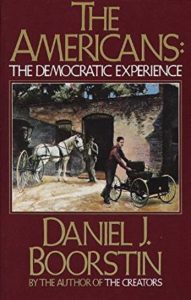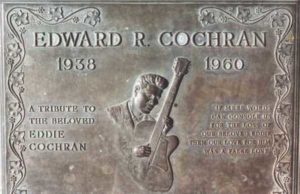Eddie Cochran’s Teenage Heaven define the goals
of Adult Teenagers today
In 1959, Eddie Cochran published and sang a song, “Teenage Heaven” in which he defined what should be the goals of all teenagers: home with a pool, private phone, no restrictions and Dad paying all the bills. Today that is a reality for many who are little more than adult teenagers {never grew up}.
I doubt that Mr. Cochran was instituting anything more than a dream of many teens of his day in a less than serious vein. Yet, this song was prophetic because these goals have largely been accomplished by many adults who never grew out of their teenage mentality. How did America come to this state of affairs?
Teenagers as a distinct social and developmental group did not exist for most of human history. You were an infant, then a child and finally an adult. In much of human history children were seen as little more than small adults. To the chagrin of many Progressives, it was the industrial revolution that brought changes to how the family structure was viewed. Children began to be seen as a separate non-adult group that needed protection. Early industrialization used children much as they had been used by parents on farms, as cheap labor. However, as the industrial complex became more complex children were less in demand. Also, as industrialization brought increased wealth with the growth of the Middle Class, children were valued as precious to the future of society. From the early 19th century onward these value changes were reflected in literature, laws and social norms. However, there was no separate class labeled teenagers, that was to come.

Mr. Boorstin in his book, The Democratic Experience
Describes the application of statistics to Americana
Mr. Boorstin describes how applied statistics changed American understanding of many aspects of society that we take for granted today. I found particularly fascinating his understanding of how statistics were used to define childhood and to create a new group, then various subgroups, between childhood and adulthood. This group was originally called adolescence, from the “Latin adolescere, meaning ‘to grow up'”. In 1889, G. Stanley Hall founded Clark University at Worcester, MA, and “…showed he had an uncanny prophetic vision of two of the strongest uncanny prophetic vision of two of the strongest currents of the American future: Psychology (a New Democratic Science of Man) and Education (a New Religion of Democracy).” {Daniel J. Boorstin. The Americans: The Democratic Experience (Kindle Locations 4691-4692). Random House, Inc.. Kindle Edition.}. “He saw how after the travail of the Napoleonic Wars a reformed system of education had helped build a new Germany. Perhaps education would be the new American religion, and Hall would be one of the Church Fathers. If so, the theology of this new religion would be scientific. Psychology offered both a scientific faith and a religious science qualified to reshape American institutions and to redefine American morals.” {Daniel J. Boorstin. The Americans: The Democratic Experience (Kindle Locations 4694-4697). Random House, Inc.. Kindle Edition.}. Hall wrote, The Contents of Children’s Minds (1883) based on statistical analysis of questionnaires completed by children in the Worcester, MA area. This merger of statistical analysis developed psychology from an esoteric, and questionable philosophy, into a science {pseudoscience}. It gave credence to Hall’s conclusions and spawned the field of child psychology. In 1890, Hall published, Children’s Lies, objecting to the traditional attitude toward morality. Lying was no longer a vice but a complicated behavior that varied with each stage of a child’s development. In other words, Hall was using psychology, legitimized by statistical analysis, to redefine morality. Pandora’s box was opened and embraced by the public.
In 1920, Hall wrote, The High School as the People’s College, in which he downplayed drill, discipline, skill or accuracy and promoted “freedom and interest”. It was he who coined the term adolescence. G. Stanley Hall literally invented the the category of adolescence in the early twentieth century as a product of American circumstances. Arnold Gesell, a disciple of Hall, conducted research on infant psychology reaching the conclusion, “The infant, like all other American citizens, should be preserved from “totalitarian” government and, at long last, should be given his autonomy”. {Daniel J. Boorstin. The Americans: The Democratic Experience (Kindle Locations 4815-4816). Random House, Inc.. Kindle Edition.}. According to Gesell misbehavior is no longer a moralistic issue but a disequilibrium which to the child and teenager is really innovation in dealing with “problems”. This disassociation from biblical morality was embraced by much of American society because: 1) It was scientific and therefore right; 2) Liberated adults from moralistic behaviors that would have been previously condemned. When a critical mass of children had been taught this witch’s brew of false science and had families the stage was set for the liberation of the 1950s and 1960s epitomized in the music now being directly marketed to this new group that suddenly had money after World War II.
The dramatic rise in high school attendance by adolescences was probably the single largest factor in creating the pop culture prevalent among teenagers (Teenagers; Encyclopedia of Children and Childhood in History and Society). The AP U.S. History of Rock n’ Roll Documentary expands upon these changes. Without a doubt the increase in prosperity in America coupled with the widespread use of automobiles by teenagers promoted the autonomy promoted by G. Stanley Hall and his predecessors; behavior divorced from morality seeking its own pleasures for pleasure’s sake. And, hey, it’s scientific so it must be right! Right?

This was promoted by music, movies and books From the 1950s onward, ever more explicit
Dr. Michael Platt, explodes this myth of the goodness of the teenager (Myth of the Teenager). He explains that adolescences desired to be adults, looked forward to growing into adulthood and strove to take on the responsibilities of adulthood: raising a family, responsible member of society, etc. Teenagers on the other hand had no intention of ever growing up, wanting to be Peter Pans forever eschewing any and all responsibilities. You might say their motto, “Better to be a slave to pleasure than deal with the uncertainties of responsibilities”. The “higher self-esteem” movement of the 1980s and onward in public schools encapsulated this idea of self-centeredness as a “good thing”. Unfortunately, the guilt of violating God’s inner morality was too much and America, and then the world, responded with massive medication on a societal scale. What soon ensued were school mass shootings by teenagers! This artificial group created for the promotion of careers and power of education {Read: the state} over its citizens has come back to haunt Western culture. Teenagers were encouraged to remain teenagers long after leaving the teen years and today many exist with Mom and Dad in a house with a pool, a private phone and no responsibilities with all bills paid. The only true pursuit is pleasure.
The Bible reads, “O My people! Children are their oppressors, and women rule over them. O My people! Your leaders lead you astray and confuse (destroy, swallow up) the direction of your paths” (Isaiah 3:12). This has occurred in our life time. Children {teenagers} masquerading as adults are in positions of power supported by the same. Mothers nurture their adult children rather than demand that they act as adults and men are a dying breed being hounded out of existence by many groups but were led primarily by feminist groups seeking to protect their eternal children. Thus, America has entered a new dark age that delights in suppressing the Bible and its morality while its people suffer increasingly from the ensuing guilt and violence that comes with unconfessed sinfulness. The final step will be a seared conscience; in other words, a sociopathic personality. If this trend remains unchanged our society will be a sociopathic America that has no guilt, knows no bounds and finds pleasure in ever debasing sensuality. This is the meaning of the world growing worse in the latter days (Mk 13:7-8). Welcome, to the latter days!

